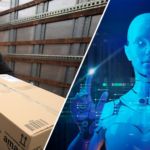With the inception of the initial mail-order company in 1872, a significant advancement in the realm of shopping was achieved. Previously, the sole recourse available was to physically visit a store or, at the very least, have someone procure items on your behalf. Approximately 80 years later, there was another pivotal transformation in consumer behavior. This shift heralded a return to traditional in-person shopping, albeit with the convenience of a one-stop shopping destination—the mall.
The emergence of online marketplaces four decades later introduced yet another revolutionary technology. Consumers once again embraced the convenience of shopping from their homes, despite the availability of all goods in a centralized location. However, another paradigm shift is on the horizon. Artificial intelligence (AI) is rapidly becoming a game-changer for merchants navigating the increasingly competitive e-commerce landscape. It is revolutionizing operational efficiencies, business models, and overall customer experiences.
According to a review by Forbes Advisor, 64% of business proprietors believe that AI will elevate customer relationships. A significant number also anticipate a surge in productivity within their organizations. Nonetheless, the integration of AI raises pertinent questions as it is often perceived as a substitute for human employees. Concerns persist regarding the trajectory of this technology, with apprehensions about potential computational biases that could perpetuate disparities and inaccuracies as AI continues to learn and evolve.
Despite the apprehensions surrounding AI, its integration with e-commerce is swiftly becoming ubiquitous. It is prudent to explore the capabilities of this technology. The following areas are typically ideal starting points:
1. Elevating Customer Experience through Personalization:
An escalating number of consumers, surpassing expectations, anticipate personalized interactions. A McKinsey & Company report indicates that 71% of modern consumers desire tailored engagements from brands. Surprisingly, 76% express frustration when this level of personalization is lacking. The challenge lies in achieving scaled personalization prior to the advent of AI.
Michael Quoc, the founder and CEO of SimplyCodes—an AI-powered promotional tool facilitating real-time discounts across over 500,000 e-commerce platforms—asserts that AI and machine learning have revolutionized customization over the past decade. Recent advancements, particularly in large language models (LLMs), have significantly enhanced the ability to deliver personalized experiences. LLMs, when integrated with conventional recommendation systems, offer heightened personalization and improved user experiences, often through more conversational interfaces. Additionally, AI-enhanced search functionalities can decipher consumer intent, enabling targeted marketing strategies and enhanced adaptability through AI-generated insights.
2. Streamlining Operations with AI-Driven Insights:
AI’s primary advantage lies in its capacity to unravel consumer preferences. It excels in analyzing past transactions, browsing histories, and diverse datasets to deliver tailored shopping experiences. Beyond enhancing customer-facing operations, AI yields substantial benefits on the backend, including cost savings, optimized resource allocation, enhanced performance, and increased efficiency.
For instance, AI plays a pivotal role in pricing strategies by eliminating guesswork and considering factors such as demand patterns, seasonal variations, and operational costs to determine optimal pricing strategies. Moreover, AI aids in predicting the most effective discount schemes throughout the year to bolster conversion rates. AI’s utilization of data extends to refining inventory management processes, minimizing issues related to understocking or overstocking products. By leveraging RFID tags and cameras, businesses can monitor real-time sales trends and make informed decisions to streamline logistics and inventory management.
Furthermore, AI excels in fortifying data security and privacy measures. By swiftly identifying and flagging potential fraudulent activities, AI enhances the security of online transactions, fostering consumer trust and loyalty.
3. Embracing New Business Models with AI Integration:
AI’s predictive capabilities are reshaping value creation within businesses, inevitably giving rise to innovative business strategies. This transformative shift in value design is poised to usher in a new wave of business models, supplanting traditional paradigms. The integration of AI-powered bots and virtual assistants has already revolutionized engagement strategies in e-commerce enterprises.
Visual recognition technology is another prominent feature gaining traction in the e-commerce sphere. This technology enables users to conduct searches using images instead of text, expediting and simplifying the search process—especially beneficial for individuals seeking specific items. Additionally, AI-driven “try-on” solutions empower users to virtually try on clothing, accessories, and beauty products from the comfort of their homes. Similar technology can be leveraged to visualize potential furniture arrangements or design elements within a space.
In essence, AI is reshaping businesses across various sectors, including retail. Just as retailers embraced mail-order services, transitioned to shopping malls, and ventured into e-commerce, the integration of AI is the next frontier. The key lies in identifying where AI can seamlessly integrate to optimize customer experiences and operational efficiency.






